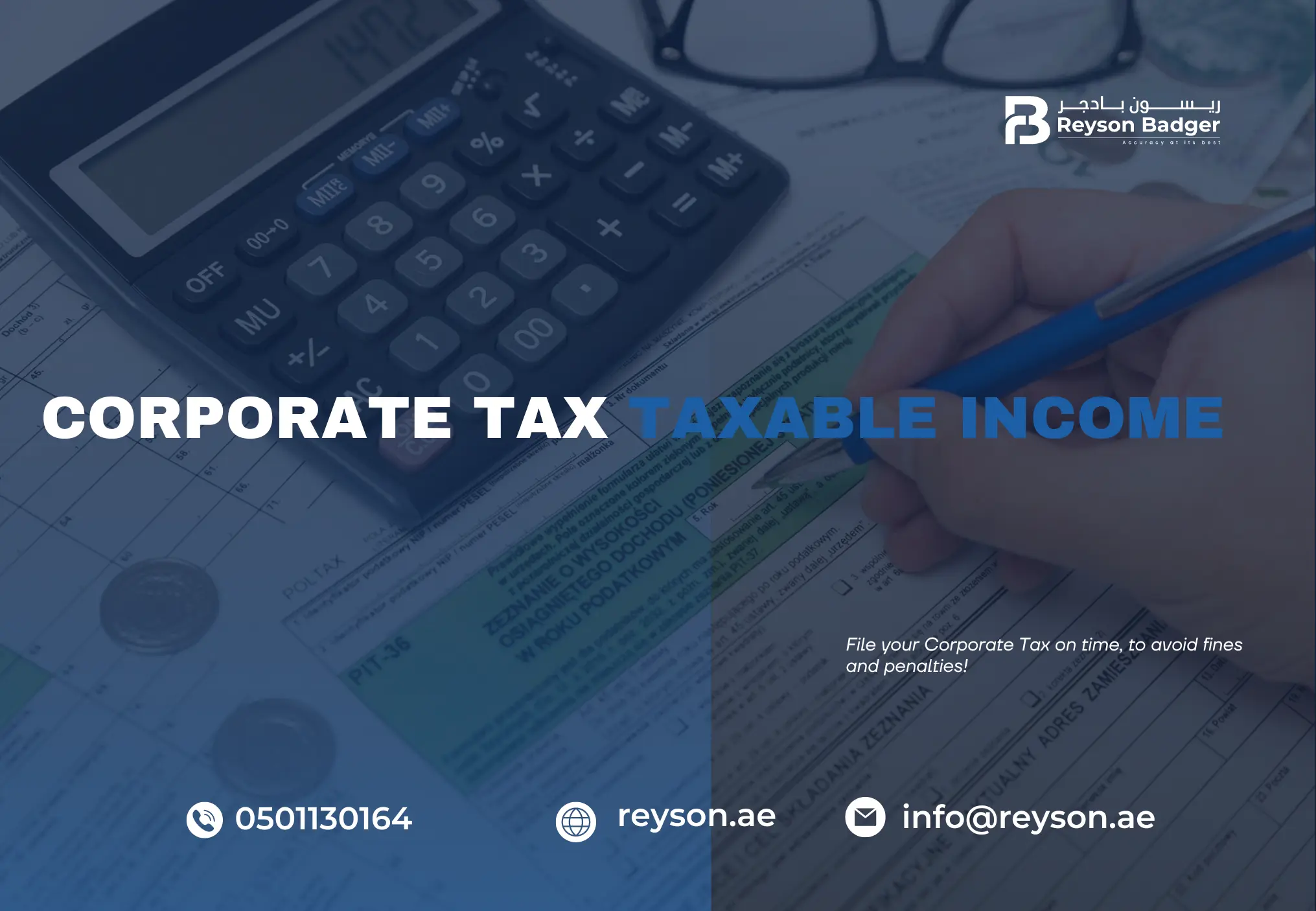
The United Arab Emirates (UAE) implemented a corporate tax system in June 2023, marking a significant shift in the country's economic landscape. This new regime offers a competitive tax environment for businesses, with a focus on supporting small businesses and startups. Understanding Corporate tax taxable income UAE is crucial for businesses operating in the UAE to ensure proper tax compliance.

Taxable income, in the context of UAE's corporate tax, refers to the profit a business generates after accounting for allowable deductions. It forms the base upon which the corporate tax liability is calculated.
While evaluating corporate taxable income calculation in UAE, businesses should consider the following components:
Understanding these components helps in optimizing the UAE business taxable income and ensuring proper compliance.
The UAE's corporate tax system uses a financial accounting profit as the starting point for determining taxable income. However, several adjustments are made according to the UAE Corporate Tax Law. These adjustments can be broadly categorized as:
It's important to consult with a qualified tax advisor to ensure accurate calculation of taxable income and compliance with UAE tax regulations.
Complexities in Interpreting Allowable Deductions and Exemptions
It is hard to understand which expenses are deductible, especially with the changing tax laws and restrictions on certain expenses such as entertainment or non-essential business activities.
Challenges for Foreign Companies and Branches
Foreign companies may face difficulties in local tax rules, tax treaties, and compliance requirements, which may lead to confusion and potential misreporting of taxable income.
Managing Tax Compliance in Companies with Diversified Sources of Income
Businesses that generate income both locally and internationally face difficulty in tracking income, handling transfer pricing, converting currencies, and meeting tax requirements in other jurisdictions. It makes the determination of taxable income more complex.
Once the taxable income is determined, the applicable tax rate is applied to calculate the corporate tax liability. Here's a simplified example:
Corporate tax liability = (Taxable income exceeding threshold) x Tax rate = AED 125,000 x 9% = AED 11,250)
Reyson Badger provides experience advice on Understanding Corporate tax taxable income in UAE is essential for businesses operating in the UAE's corporate tax regime. The UAE offers a competitive tax environment with a beneficial threshold for small businesses and QFZPs. Consulting with a tax professional is recommended to ensure accurate tax calculations and compliance with UAE regulations. By effectively managing taxable income, businesses can optimize their tax liabilities and contribute to the UAE's growing economy.
1. How is Corporate Tax Taxable Income UAE calculated?
It is calculated by subtracting allowable business expenses, tax reliefs, and non-deductible expenses from the total gross income of a company.
2. What types of income are included in Corporate Tax Taxable Income UAE?
Corporate Tax Taxable Income UAE includes revenue generated from business activities, investments, sales of goods and services, and other business-related earnings.
3. What types of income are included in Corporate Tax Taxable Income in UAE?
Corporate Tax Taxable Income UAE includes revenue generated from business activities, investments, sales of goods and services, and other business-related earnings.
4. Are there any exemptions for Corporate Tax Taxable Income UAE?
Yes, exemptions may apply to certain income types, such as qualifying dividends, capital gains from eligible shareholdings, and income from certain free zone activities.